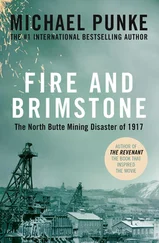George Bryce - The Siege and Conquest of the North Pole
Здесь есть возможность читать онлайн «George Bryce - The Siege and Conquest of the North Pole» — ознакомительный отрывок электронной книги совершенно бесплатно, а после прочтения отрывка купить полную версию. В некоторых случаях можно слушать аудио, скачать через торрент в формате fb2 и присутствует краткое содержание. Жанр: foreign_antique, foreign_prose, на английском языке. Описание произведения, (предисловие) а так же отзывы посетителей доступны на портале библиотеки ЛибКат.
- Название:The Siege and Conquest of the North Pole
- Автор:
- Жанр:
- Год:неизвестен
- ISBN:нет данных
- Рейтинг книги:5 / 5. Голосов: 1
-
Избранное:Добавить в избранное
- Отзывы:
-
Ваша оценка:
- 100
- 1
- 2
- 3
- 4
- 5
The Siege and Conquest of the North Pole: краткое содержание, описание и аннотация
Предлагаем к чтению аннотацию, описание, краткое содержание или предисловие (зависит от того, что написал сам автор книги «The Siege and Conquest of the North Pole»). Если вы не нашли необходимую информацию о книге — напишите в комментариях, мы постараемся отыскать её.
The Siege and Conquest of the North Pole — читать онлайн ознакомительный отрывок
Ниже представлен текст книги, разбитый по страницам. Система сохранения места последней прочитанной страницы, позволяет с удобством читать онлайн бесплатно книгу «The Siege and Conquest of the North Pole», без необходимости каждый раз заново искать на чём Вы остановились. Поставьте закладку, и сможете в любой момент перейти на страницу, на которой закончили чтение.
Интервал:
Закладка:
“It was indispensable, then, that we should move on, looking out for traces as we went. Yet when the men were ordered to spread themselves, so as to multiply the chances, though they all obeyed heartily, some painful impress of solitary danger, or perhaps it may have been the varying configuration of the ice-field, kept them closing up continually into a single group. The strange manner in which some of us were affected I now attribute as much to shattered nerves as to the direct influence of the cold. Men like McGary and Bonsall, who had stood out our severest marches, were seized with trembling-fits and short breath; and, in spite of all my efforts to keep up an example of sound bearing, I fainted twice on the snow.
“We had been nearly eighteen hours out without water or food, when a new hope cheered us. I think it was Hans, our Esquimaux hunter, who thought he saw a broad sledge-track. The drift had nearly effaced it, and we were some of us doubtful at first whether it was not one of those accidental rifts which the gales make in the surface-snow. But, as we traced on to the deep snow among the hummocks, we were led to footsteps; and, following these with religious care, we at last came in sight of a small American flag fluttering from a hummock, and lower down a little Masonic banner hanging from a tent-pole hardly above the drift. It was the camp of our disabled comrades: we reached it after an unbroken march of twenty-one hours. The little tent was nearly covered. I was not among the first to come up; but, when I reached the tent-curtain, the men were standing in silent file on each side of it. With more kindness and delicacy of feeling than is often supposed to belong to sailors, but which is almost characteristic, they intimated their wish that I should go in alone. As I crawled in, and, coming upon the darkness, heard before me the burst of welcome gladness that came from the four poor fellows stretched on their backs, and then for the first time the cheer outside, my weakness and my gratitude together almost overcame me. ‘They had expected me: they were sure I would come!’
“We were now fifteen souls; the thermometer 75° below the freezing-point; and our sole accommodation a tent barely able to contain eight persons: more than half our party were obliged to keep from freezing by walking outside while the others slept. We could not halt long. Each of us took a turn of two hours sleep; and we prepared for our homeward march.
“We took with us nothing but the tent, furs to protect the rescued party, and food for a journey of fifty hours. Everything else was abandoned. Two large buffalo-bags, each made of four skins, were doubled up, so as to form a sort of sack, lined on each side by fur, closed at the bottom, but opened at the top. This was laid on the sledge; the tent, smoothly folded, serving as a floor. The sick, with their limbs sewed up carefully in reindeer-skins, were placed upon the bed of buffalo-robes, in a half-reclining posture; other skins and blanket-bags were thrown above them; and the whole litter was lashed together so as to allow but a single opening opposite the mouth for breathing.
“This necessary work cost us a great deal of time and effort; but it was essential to the lives of the sufferers. It took us no less than four hours to strip and refresh them, and then to embale them in the manner I have described. Few of us escaped without frost-bitten fingers: the thermometer was at 55.6° below zero, and a slight wind added to the severity of the cold.
“It was completed at last, however: all hands stood around; and, after repeating a short prayer, we set out on our retreat. It was fortunate indeed that we were not inexperienced in sledging over the ice. A great part of our track lay among a succession of hummocks; some of them extending in long lines, 15 and 20 feet high, and so uniformly steep that we had to turn them by a considerable deviation from our direct course; others that we forced our way through, far above our heads in height, lying in parallel ridges, with the space between too narrow for the sledge to be lowered into it safely, and yet not wide enough for the runners to cross without the aid of ropes to stay them. These spaces, too, were generally choked with light snow, hiding the openings between the ice-fragments. They were fearful traps to disengage a limb from, for every man knew that a fracture or a sprain even would cost him his life. Besides all this, the sledge was top-heavy with its load: the maimed men could not bear to be lashed down tight enough to secure them against falling off. Notwithstanding our caution in rejecting every superfluous burden, the weight, including bags and tent, was 1100 pounds.
“And yet our march for the first six hours was very cheering. We made by vigorous pulls and lifts nearly a mile an hour, and reached the new floes before we were absolutely weary. Our sledge sustained the trial admirably. Ohlsen, restored by hope, walked steadily at the leading belt of the sledge-lines; and I began to feel certain of reaching our half-way station of the day before, where we had left our tent. But we were still 9 miles from it, when, almost without premonition, we all became aware of an alarming failure of our energies.
“I was, of course, familiar with the benumbed and almost lethargic sensation of extreme cold; and once, when exposed for some hours in the midwinter of Baffin’s Bay, I had experienced symptoms which I compared to the diffused paralysis of the electro-galvanic shock. But I had treated the sleepy comfort of freezing as something like the embellishment of romance. I had evidence now to the contrary.
“Bonsall and Morton, two of our stoutest men, came to me, begging permission to sleep: ‘they were not cold: the wind did not enter them now: a little sleep was all they wanted.’ Presently Hans was found nearly stiff under a drift; and Thomas, bolt upright, had his eyes closed, and could hardly articulate. At last, John Blake threw himself on the snow, and refused to rise. They did not complain of feeling cold; but it was in vain that I wrestled, boxed, ran, argued, jeered, or reprimanded: an immediate halt could not be avoided.
“We pitched our tent with much difficulty. Our hands were too powerless to strike a fire; we were obliged to do without water or food. Even the spirits (whisky) had frozen at the men’s feet, under all the coverings. We put Bonsall, Ohlsen, Thomas, and Hans, with the other sick men, well inside the tent, and crowded in as many others as we could. Then, leaving the party in charge of Mr. McGary, with orders to come on after four hours’ rest, I pushed ahead with William Godfrey, who volunteered to be my companion. My aim was to reach the half-way tent, and thaw some ice and pemmican before the others arrived.
“The floe was of level ice, and the walking excellent. I cannot tell how long it took us to make the 9 miles; for we were in a strange sort of stupor, and had little apprehension of time. It was probably about four hours. We kept ourselves awake by imposing on each other a continued articulation of words; they must have been incoherent enough. I recall these hours as among the most wretched I have ever gone through: we were neither of us in our right senses, and retained a very confused recollection of what preceded our arrival at the tent. We both of us, however, remember a bear, who walked leisurely before us and tore up as he went a jumper that Mr. McGary had improvidently thrown off the day before. He tore it into shreds and rolled it into a ball, but never offered to interfere with our progress. I remember this, and with it a confused sentiment that our tent and buffalo-robes might probably share the same fate. Godfrey, with whom the memory of this day’s work may atone for many faults of a later time, had a better eye than myself; and, looking some miles ahead, he could see that our tent was undergoing the same unceremonious treatment. I thought I saw it too, but we were so drunken with cold that we strode on steadily, and, for aught I know, without quickening our pace.
Читать дальшеИнтервал:
Закладка:
Похожие книги на «The Siege and Conquest of the North Pole»
Представляем Вашему вниманию похожие книги на «The Siege and Conquest of the North Pole» списком для выбора. Мы отобрали схожую по названию и смыслу литературу в надежде предоставить читателям больше вариантов отыскать новые, интересные, ещё непрочитанные произведения.
Обсуждение, отзывы о книге «The Siege and Conquest of the North Pole» и просто собственные мнения читателей. Оставьте ваши комментарии, напишите, что Вы думаете о произведении, его смысле или главных героях. Укажите что конкретно понравилось, а что нет, и почему Вы так считаете.












